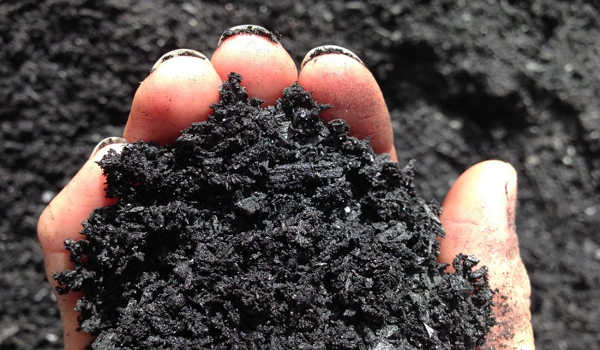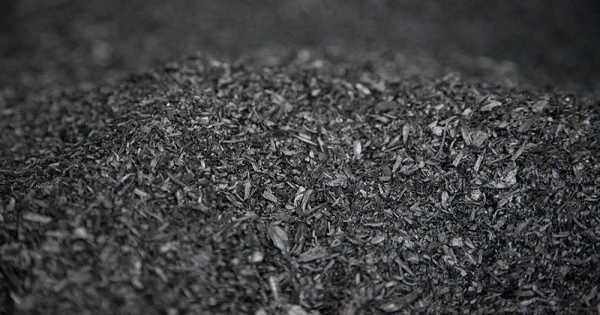According to a new study, biochar can increase crop yields in poor soils while also helping to mitigate the effects of climate change. An international review involving UNSW discovered that a product made from urban, agricultural, and forestry waste has the added benefit of lowering the carbon footprint of modern farming.
According to Stephen Joseph, Visiting Professor in the School of Materials Science and Engineering at UNSW Science, the study published in GCB Bioenergy provides strong evidence that biochar can contribute to climate change mitigation.
“Biochar can pull carbon from the atmosphere and store it in the soil for hundreds to thousands of years,” says the lead author. “This study also discovered that biochar helps build organic carbon in soil by up to 20% (average 3.8%) and can reduce nitrous oxide emissions from the soil by 12 to 50%, which increases biochar’s climate change mitigation benefits.”
The findings are backed up by the Intergovernmental Panel on Climate Change’s recent Special Report on Climate Change and Land, which estimated that biochar had significant climate change mitigation potential. “The intergovernmental panel determined that biochar could reduce between 300 million and 660 million tonnes of carbon dioxide per year globally by 2050,” Prof. Joseph says. “When compared to Australia’s emissions last year (an estimated 499 million tonnes of carbon dioxide), biochar can absorb a significant amount of emissions. All we need is the desire to create and apply it.”
Biochar can boost crop yields in poor soils and help stop the effects of climate change, study finds.
Biochar is produced by pyrolyzing biomass residues such as wood chips, animal manures, sludges, compost, and green waste in an oxygen-depleted environment. As a result, stable charcoal is produced, which can reduce greenhouse gas emissions while increasing soil fertility. The GCB Bioenergy study examined approximately 300 papers, including 33 meta-analyses, from among the 14,000 biochar studies published in the last 20 years.
“It discovered that average crop yields increased by 10 to 42%, heavy metal concentrations in plant tissue decreased by 17 to 39%, and phosphorus availability to plants increased,” Prof. Joseph says. “Biochar aids in the resistance of plants to environmental stresses such as diseases, as well as the tolerance of toxic metals, water stress, and organic compounds such as the herbicide atrazine.” For the first time, the study describes how biochar improves a plant’s root zone.
As biochar reacts with the soil in the first three weeks, it can stimulate seed germination and seedling growth. Over the next six months, reactive surfaces on biochar particles are formed, improving nutrient supply to plants. Biochar begins to ‘age’ in the soil after three to six months, forming microaggregates that protect organic matter from decomposition.
According to Prof. Joseph, the study discovered that the best responses to biochar were in acidic and sandy soils where biochar was applied in conjunction with fertilizer. “We discovered that the beneficial effects of biochar were dose-dependent, as well as dependent on matching the properties of the biochar to soil constraints and plant nutrient requirements,” Prof. Joseph explains.

“Plants, particularly those in low-nutrient, acidic soils common in the tropics and humid subtropics, such as the north coast of New South Wales and Queensland, could benefit significantly from biochar.” Sandy soils in Western Australia, Victoria, and South Australia, particularly in dryland regions prone to drought as a result of climate change, would also benefit greatly.”
Prof. Joseph AM specializes in the creation of engineered stable biochar from agricultural, urban, and forestry waste. Since being introduced to biochar by Indigenous Australians in the 1970s, he has been researching its benefits in promoting healthy soils and addressing climate change. He claims that Indigenous peoples in Australia, Latin America (particularly the Amazon basin), and Africa have been using biochar for crop production and soil health for hundreds of years.
Biochar was also used as a feed supplement for animals in the 17th century. However, despite the fact that Australian researchers have been studying biochar since 2005, it has been slow to gain traction as a commercial product, with Australia producing around 5000 tonnes per year. “This is due, in part, to the small number of large-scale demonstration programs that have been funded, as well as farmers’ and government advisors’ lack of knowledge about biochar, regulatory hurdles, and a lack of venture capital and young entrepreneurs to fund and build biochar businesses,” Prof. Joseph explains.
In comparison, the United States produces approximately 50,000 tonnes per year, while China produces more than 500,000 tonnes per year. Prof. Joseph, who has been awarded the Order of Australia for his work in renewable energy and biochar, believes that in order for biochar to be widely adopted, it must be easily integrated into farming operations and shown to be economically viable. “We’ve done the science; what we lack is enough resources to educate and train people, to set up demonstrations so farmers can see the benefits of using biochar, and to develop this new industry,” he says.
This is gradually changing as large corporations purchase carbon dioxide reduction certificates (CORCs) to offset their emissions, raising the profile of biochar in Australia. Biochar has a wide range of applications. Prof. Joseph co-authored a recent study published in International Materials Reviews that detailed the less well-known uses of biochar, such as as a construction material, to reduce toxins in the soil, grow microorganisms, in animal feed, and for soil remediation. According to him, UNSW has a collaborative grant with a Norwegian company and university to develop a biochar-based anti-microbial coating to kill pathogens in water and find use in air filtration systems.
Stephen Joseph is a member of the Biochar Industries Group of Australia and New Zealand. For the development and testing of biochars, the universities where he works have received grants from both the state and federal governments, as well as from private companies. He has also assisted businesses and farmers in developing biochars and biochar-making equipment.
















